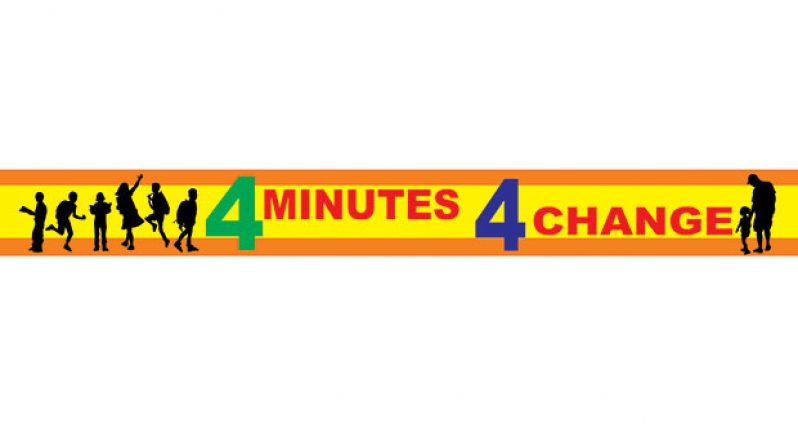Some family behaviour can be seen as a traditional ‘way of life’ that is passed down from generation to generation. It is accepted by children without question, (because they are too young to know any better) who in turn pass the same traits on to their children when they become adults. Today on 4 minutes for change we highlight two such behaviours. Both can have long-term effects on children and their adult relationships.LACK OF AFFECTION
There are parents who fail to show their children any love or affection. They never praise their children or make them feel special in any way. Giving attention, love and affection are a few factors required for a rounded childhood.
When you ask grown-ups why they do not hug their children they usually say something like, ‘that is not how I come up… my parents never hugged me or showed me any affection, or ‘I am not accustom…’. This could be a valid reason or an excuse depending how you look at it. A valid reason: If an adult was not shown affection as a child they might feel disingenuous (fake) attempting to portray and share those emotions with their children. An excuse: The universal language is love: set aside your pride or fears. Get to grips with the fact that it is natural to show some love and affection to your children, everyone needs it.
When parents give words of encouragement and show affection it really does boost a child’s morale and self-esteem. Children are confident and perform better at school when they feel loved and appreciated. The hugging and showing of affection can be done at any age regardless of how big the child has grown Hugging does far more good than you can imagine.
DOMESTIC VIOLENCE
Children should never have to witness domestic violence. But some adults think it is okay to have violent episodes and confrontations in earshot or in front of their children. Adults fighting and hitting one another is not ‘normal’ behaviour and when children are raised in this type of environment they tend to portray the same actions towards their peers and then as adults with their partners. And so the negative cycle continues without anyone stopping to question whether a Man beating up on his Wife (or vice versa) has long-term negative effects on the children and family.
Children actually grow up believing that hitting another person is the way to resolve arguments or conflict: or a way of showing their anger or displeasure about a situation. Luckily, some adults, who witnessed domestic violence as a child, make the conscious decision to never hit their children or their partner due to the ordeal they witnessed as a child. And some children, who were denied affection, grow into adults who make a point of surrounding their children with all the love and attention they can give, based on what they ‘missed out on’ during their developmental years. These are adults conscious of the effects that their parents’ behaviour has had on them and they have no wish to pass on the same trauma to their offspring.
No one can predict the type (or extent) of the damage that parents cause children when they grow with domestic violence or with the lack of affection, but we can work towards making better childhoods for our children: Childhoods filled with love and caring, nurturing and sharing, kisses, hugs and positive parenting. Let’s do it… starting today.
If you are concerned about the welfare of a child call the Childcare and Protection Hotline
on 227 0979 or write to us at childcaregy@gmail.com
A message from the Childcare and Protection Agency, Ministry of Social Protection




.png)









